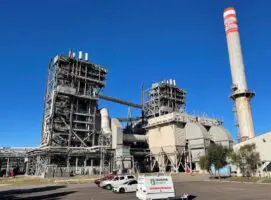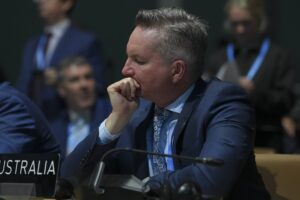The state owned generation company CS Energy has taken the rap for downplaying the gravity of the latest Callide coal generator explosion, as the state government scrambles to shift blame over its failure to mention the incident while announcing plans to extend the life of the ageing plant.
In an extraordinary media release issued late on Wednesday, CS Energy admitted to ongoing “cultural issues” at the company, and said there had not been adequate reporting of serious issues to senior management, the board and relevant ministers.
“The Board confirms that briefings and holding statements by CS Energy to the Energy Minister’s office understated the gravity of the incident and the release of public statements is always a decision for CS Energy management,” the statement said.
It followed reports in the Courier-Mail that said three statements had been sent to the minister’s office by CS Energy in the days following the latest incident at Callide C, which has been described as an “explosion” or “blast” that involved a sudden rise in pressure following an issue with clinker inside a boiler.
The Courier Mail said the statements had not been released – neither by CS Energy nor the minister’s office – and the incident had not been mentioned when energy minister David janetzki announced on the Monday plans to extend the life of the neighbouring Callide B, a generator that is older and considered less reliable than the troubled Callide C.
The government now admits that the incident should have been mentioned, but is clearly seeking to pass the blame on to CS Energy. It demanded the immediate removal of CS Energy CEO Darren Busine (who had already given notice), and the Callide general manager over the weekend.
According to the Courier Mail, the latest statement from CS Energy was issued just a few hours after senior officials met with Janetzki and finance minister Ros Bates on Wednesday morning.
One inference that could be drawn from the statement is that the state government may have reassessed its pledge to keep Callide B open had it been told of the gravity of the Callide C incident.
Renew Economy asked Janetzski’s office if this is the case, but was told that the minister’s position has not changed.
In any case, the fragility of Callide B is hardly a secret. It has had multiple problems – despite a recent major overhaul – and barely operates above a 50 per cent capacity factor.
“At Callide B, unit B1 suffered two outages during January 2025, one of the hottest months of the year, despite a major maintenance project taking it offline from July to December 2024,” the Queensland Conservation Council said last week after the extension was first announced.
“To keep the lights on it’s clear we need to diversify our energy supply and build more renewable energy backed by storage. Extending the life of coal just means waiting around for the next breakdown.
“What’s concerning is right now the Queensland Government don’t have an energy plan, and by backing ageing coal, they’re actively stifling renewable energy.”
Meanwhile, other state owned generators are now making public any outages from their equipment as a result of a new state government directive.
On Wednesday, CleanCo said its 385 MW Swanbank E gas fired power station has been offline since April 4 because of a fault identified in the gas turbine cooling air system. It had hoped to return the unit – which also had a major overhaul just last year – on April 18, but the discovery of more problems has pushed that out to April 23.
“While repairs are progressing as planned, sourcing of specialist components and machining delays on the blowoff valve shaft have resulted in a revised return-to-service date,” it said.
The Australian Energy Market Operator has made clear that the biggest risk to grid reliability and security is the performance of ageing coal and gas assets.
Its Integrated System Plan plots a path to 82 per cent renewables by 2030, and the federal Labor government has now adopted this plan and target as its energy policy.
The new state LNP government in Queensland has said it will scrap the legislated renewable energy target, which sought a share of just 50 per cent renewables by 2030. It remains the country’s most coal dependent state.








